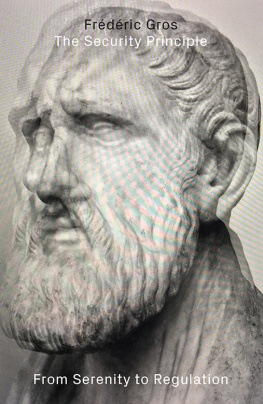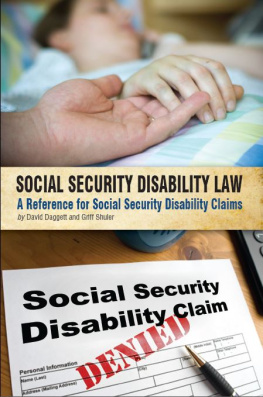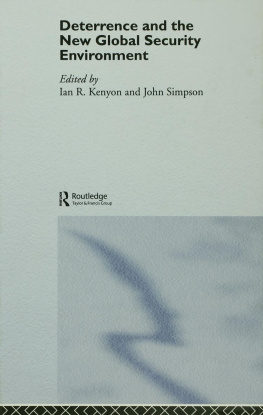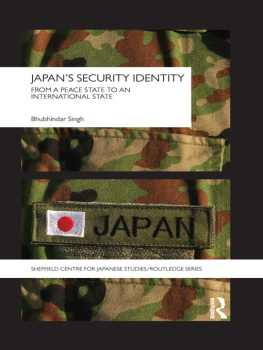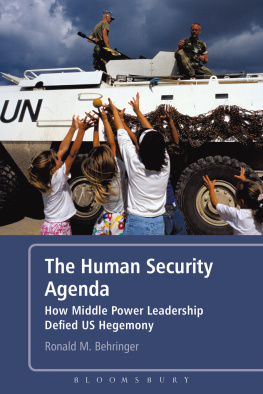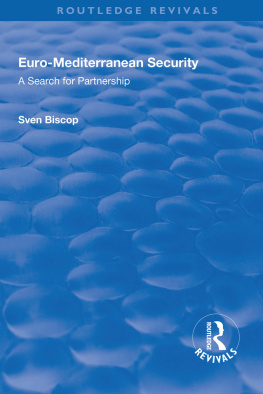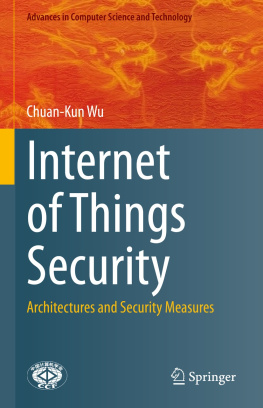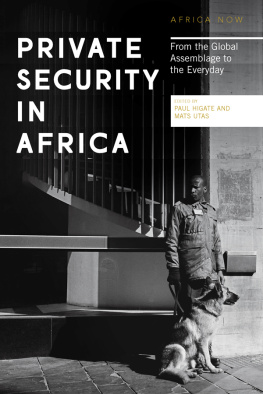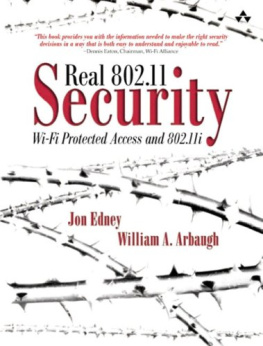Contents

The Security Principle
The Security Principle
From Serenity to Regulation
Frdric Gros
Translated by David Broder


This work was published with the help of the French Ministry of Culture Centre national du livre
Ouvrage publi avec le concours du Ministre franais charg de la culture Centre national du livre

This book is supported by the Institute franais (Royaume-Uni) as part of the Burgess Programme
This English-language edition published by Verso 2019
Originally published in French as Le Principe scurit
Gallimard 2013
Translation David Broder 2019
All rights reserved
The moral rights of the author have been asserted
1 3 5 7 9 10 8 6 4 2
Verso
UK: 6 Meard Street, London W1F 0EG
US: 20 Jay Street, Suite 1010, Brooklyn, NY 11201
versobooks.com
Verso is the imprint of New Left Books
ISBN-13: 978-1-78478-715-8
ISBN-13: 978-1-78478-714-1 (HARDBACK)
ISBN-13: 978-1-78478-716-5 (UK EBK)
ISBN-13: 978-1-78478-717-2 (US EBK)
British Library Cataloguing in Publication Data
A catalogue record for this book is available from the British Library
Library of Congress Cataloging-in-Publication Data
A catalog record for this book is available from the Library of Congress
Typeset in Minion by Hewer Text UK Ltd, Edinburgh
Printed and bound by CPI Group (UK) Ltd, Croydon CR0 4YY
Contents
Security has today become a remarkable focus of discussion within the media and in politics. This term has invaded public debate indeed, political leaders talk at great length about it. We complain about the increasing feeling of insecurity, we haughtily observe that security is the most fundamental freedom, we pull out opinion polls to show us that security is as much of a popular concern as unemployment or the environment, and we cast security as an indispensable condition for childhood development and fulfilment in adult life. In recent years, we have even seen the rise of new expressions such as food security, energy security and human security. At the same time, the sector of the economy that revolves around all forms of security (from information technology to surveillance and home security) is rapidly expanding. When everything is in turmoil and fear is on the rise, those whose business it is to sell security can line their pockets. But what actually is security? A feeling, a political programme, some material force, a smokescreen, a hope, a damnation, a pathological obsession, a commodity, a public service? We can begin by delving into a few of the existing definitions.
For the Littr dictionary, security means peace of mind, however well or ill-founded, in a moment where there may be something to fear; for the Trsor de la langue franaise, it is a confident and calm state of mind. Here security is not just a feeling but a balanced state of mind, a certain disposition of the soul when it is calm, tranquil and confident. In this first sense, security is what we would today call serenity. This meaning comes directly from Latin: what is securus is whatever is sine cura, or above concern, free of trouble, without worry. This term also has a long history in the French language: for Rousseau, security is the condition of pure souls like Julie in his New Heloise. Only those who have a tranquil conscience and a virtuous heart can enjoy a sense of security.
In this case, the emphasis is placed not on the absence of danger or the freedom from threats, but rather on the fact that such jeopardy is unable to trouble ones peace of mind. Nothing can upset the sleep of the just and as long as one has a tranquil conscience, one ought not be afraid. Up till the end of the eighteenth century the dictionaries of the Acadmie franaise observed that this peace of mind was felt precisely in a time and in a situation when there may indeed be something to fear. This concept of security did not, therefore, rule out the possibility of threat. The important thing was that security depended on a wholly internal, subjective steadfastness rather than the reality of dangers actually being kept at bay. We find this same emphasis in the examples quoted from the 1762 edition of the Acadmies dictionary: Amidst so many perils, you fear nothing, your security is remarkable; He slept among his enemies with incredible security; With great security of conscience. In the Dictionnaire de lAcadmie franaise (1935), there is a different meaning: security is the absence of danger. In the Trsor de la langue franaise, security is an objective situation reliant on material, economic and political conditions that imply the absence of dangers to individuals or threats to goods, thus causing confidence. And according to Larousse, security is a situation in which someone or something is not exposed to any danger, any risk, and in particular the risk of physical aggression, accidents, theft or damage. In these latter examples, things have been turned on their head: security designates not a state of mind but an objective situation. It indicates not some internal calm that even the tangible presence of danger is unable to disrupt but, rather, the absence of threats, a situation in which risks have objectively been removed and dangers ruled out. It is in this sense that we can say that an individual has been secured, finding themsleves in a situation where they are not in any way imperilled. To secure an object is to place it somewhere beyond risk, where it cannot be carried off or damaged.
~
Another definition has it that security is an element of the material public order, characterized by the absence of dangers to an individuals life, liberty or property rights (Trsor de la langue franaise). This third definition, which is both far-reaching and specific, integrates security into the state, understood as a centralized political unit a public authority. When we speak of public security, we are referring to the protection of goods and individuals against aggression and theft, but also the defence of institutions against subversion, rebellion and sedition. When we speak of collective security, we are referring to the interplay of alliances between states, as well as other diplomatic treaties that seek to dissuade aggression by some third party. When we speak of military security, we are referring to a combination of armed forces that can prevent the invasion of our territory. Here, the state appears as the guarantor of security: it guarantees the rights of the people, the preservation of their lives and assets, the territorial integrity of a country, the stability of the government and public order. In this example, security is the state.
Trsor de la langue franaise speaks of security as both concrete and abstract: Security: Whatever allows the normal functioning of some activity, or for a process to play out in a normal way. For example, to maintain security stocks is to prepare to never run short and to be able to respond to any demand. Here, security designates a complement to some operation, allowing it to proceed without let or hindrance. More broadly, it refers to a set of measures designed to ensure the continuity of some process. This is the sense in which we can today talk of information technology (IT) security but also food security (ensuring a continual supply of food to a given population) or energy security (building up reserves, diversifying supply sources, anticipating crises).

